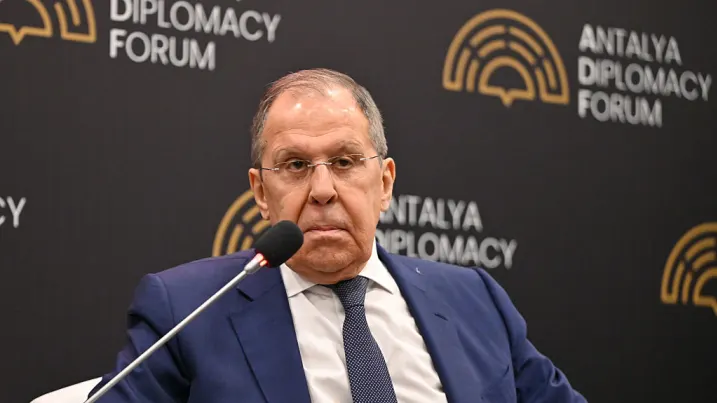At the recent Antalya Diplomacy Forum in Turkey, Russia and Ukraine once again exchanged sharp accusations, each blaming the other for violating a tentative ceasefire agreement brokered by the United States. The ceasefire, aimed at halting attacks on critical energy infrastructure, appears to be unraveling just weeks after it was agreed in principle.
Russian Foreign Minister Sergey Lavrov and Ukraine’s Deputy Foreign Minister Andrii Sybiha addressed the escalating tension in separate sessions at the high-level diplomatic gathering. Their speeches followed a key meeting in Moscow between U.S. special envoy Steve Witkoff and Russian President Vladimir Putin to explore potential paths to peace in the now three-year-long conflict.
Despite the agreement for a limited 30-day ceasefire, both Moscow and Kyiv have issued conflicting interpretations and blamed one another for repeated violations. Lavrov accused Ukraine of launching daily attacks despite the truce, stating, “The Ukrainians have been attacking us from the very beginning, every passing day, with few exceptions.” He said Russia would present evidence of more than 60 Ukrainian violations to the U.S., Turkey, and international observers.
Ukraine strongly denied the claims. Sybiha revealed that since the deal took effect, Russia had launched “almost 70 missiles, over 2,200 drones, and more than 6,000 guided bombs,” mainly targeting civilians. “This clearly shows to the world who truly wants peace and who continues to pursue war,” he asserted.
The accusations come amid fears of a renewed Russian spring offensive, which Kyiv believes is part of a strategy to strengthen Moscow’s hand in future negotiations. Although Ukraine has shown openness to a broader ceasefire proposal backed by the U.S., Russia has refused to commit unless sanctions affecting its shipping, insurance, and international payment systems are lifted.
U.S. President Donald Trump weighed in on the matter through social media, urging Russia to “get moving” on efforts to end what he called a “terrible and senseless” war.

Meanwhile, hopes for securing safe commercial shipping in the Black Sea—another part of the U.S.-mediated talks—have also hit roadblocks. Lavrov stated that no progress can be made unless the international restrictions on Russia’s maritime trade are eased.
In another tragic development, Ukraine confirmed the death of 26-year-old Pavlo Ivanov, a pilot flying an F-16 fighter jet recently supplied by Western allies. According to Ukraine’s air force, the jet crashed while defending against a Russian missile strike. President Volodymyr Zelenskyy mourned the loss, describing Ivanov as a hero who paid the ultimate price.
The F-16s, supplied by Denmark and the Netherlands with U.S. approval, were expected to strengthen Ukraine’s defense capabilities. However, this latest crash highlights the growing risks and high costs of the prolonged conflict.
As diplomacy stumbles and hostilities rise again, both sides remain locked in a dangerous blame game—with civilians bearing the brunt of the violence.



